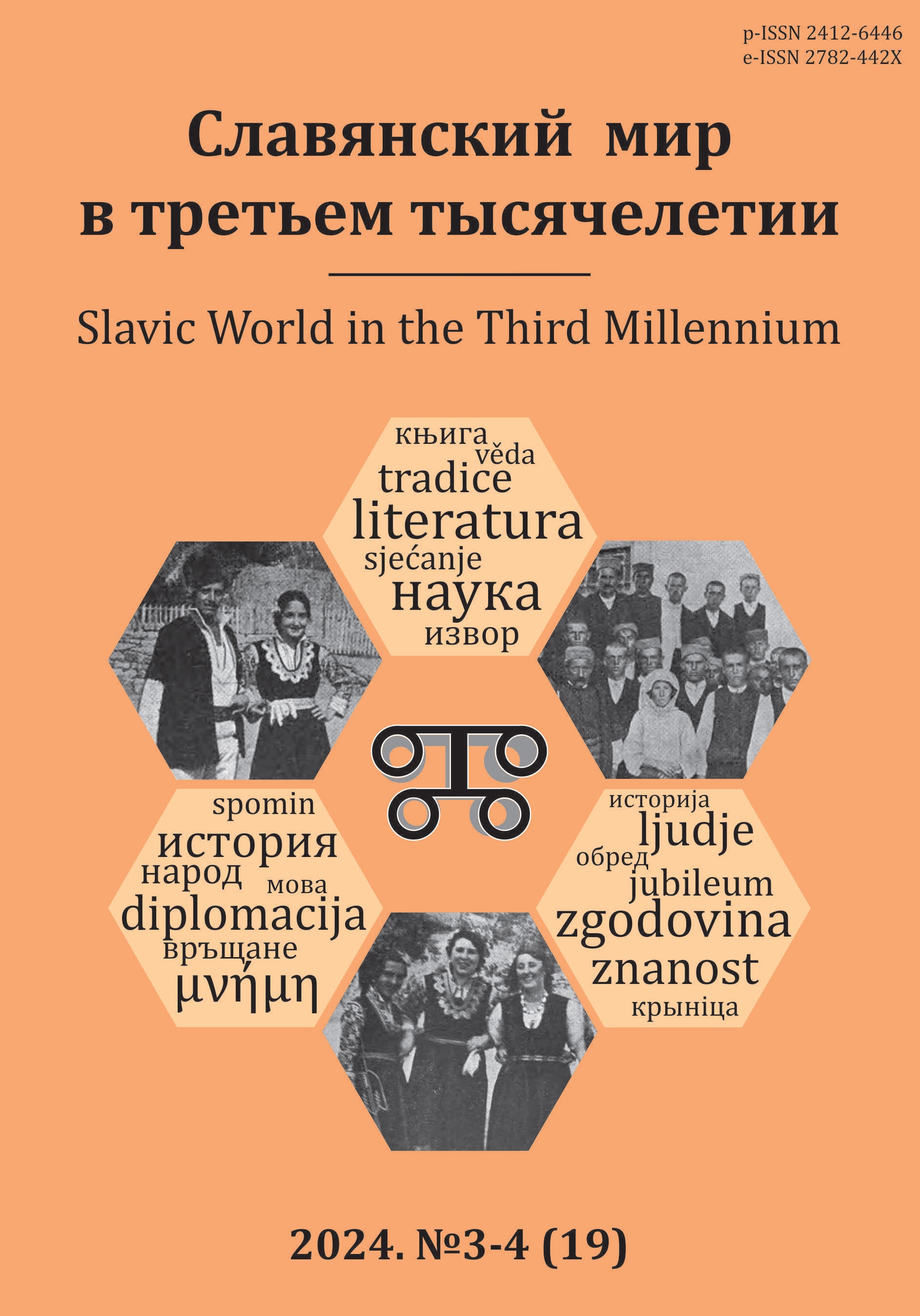Representations of the Dead in the Popular Culture of Pontic Greeks
DOI:
https://doi.org/10.31168/2412-6446.2024.19.3-4.11Keywords:
Traditional Greek culture, ethnolinguistics, Pontic Greeks, Pontic dialect of the Greek language, funeral and memorial rites, folk mythology, field researchAbstract
This article presents a detailed account of the folk-mythological representations of the deceased in the traditional culture of the Pontic Greeks. It is primarily based on field data collected during expeditions conducted between 2022 and 2024 in the areas where the Pontic Greeks have traditionally lived in concentrated settlements. The data was collected from the Krasnodar and Stavropol regions, the Republics of Karachay-Cherkessia, North Ossetia-Alania and Dagestan, Kazakhstan, Georgia and Armenia, as well as from written sources on the traditional culture of the Pontic Greeks and dialect dictionaries. The characteristics of the Pontic mythological character "hortlach" ("walking dead," zombie) are considered according to the scheme developed by the team of authors of the Moscow ethnolinguistic school. This includes a description of the character's names and titles, its hypostases, characteristics of its appearance, genesis, loci, time of activation, properties, characteristic occupations, functions and predicates, objects of influence, characteristic motifs, and other relevant information. A distinctive quality of the Pontic "hortlach" is its capacity to alter its physical form. During the daytime, it assumes the appearance of a deceased individual interred in a grave, at night, it emerges from the cemetery and departs from the burial ground. Another distinctive attribute of the Pontic "hortlach" is its capacity to transform into a werewolf. During the daytime, it lies in the grave in the form of a deceased individual, while at night it emerges from the cemetery and traverses the village in the guise of a massive black canine. The concepts associated with the "Chortlakh" are more enduring among Turkic-speaking Urum Greeks, who are native to Greek villages in Georgia. This observation correlates with the overall more robust preservation of folk-mythological beliefs and traditional culture within this subgroup. Narratives about "chortlakh" are ubiquitous across all surveyed regions, and the lexeme itself is fixed in a multitude of phraseological expressions, including "to wander like a chortlakh," "to walk at night like a chortlakh," and as a swear word. Extended texts with descriptions of mythological characters or full texts of classical stories are very rarely recorded in the surveyed territories, and mythological vocabulary is gradually fading into oblivion.
Funding
The study was supported by a grant from the Russian Science Foundation № 22-18-00484 “Slavic-non-Slavic borderlands: funeral and memorial rite in ethnolinguistic coverage”.
Received 26 November 2024
Revised 3 December 2024
Accepted 10 December 2024
For citation: Klimova, K. A., 2024. Representations of the Dead in the Popular Culture of Pontic Greeks. Slavic World in the Third Millennium, 19 (3–4), pp. 231–245. https://doi.org/10.31168/2412-6446.2024.19.3-4.11



